2020 Update
Check out an updated, expanded, and revised tour-booking guide from Brian in my upcoming book, Tune Up & Travel: The Indie-Musician’s Bible.
Tune Up & Travel - the book!
I’ve called upon folksy-friends from all walks of life to assemble the most complete “how-to” guide for independent musicianship.
Get a free beta copy when it's available.
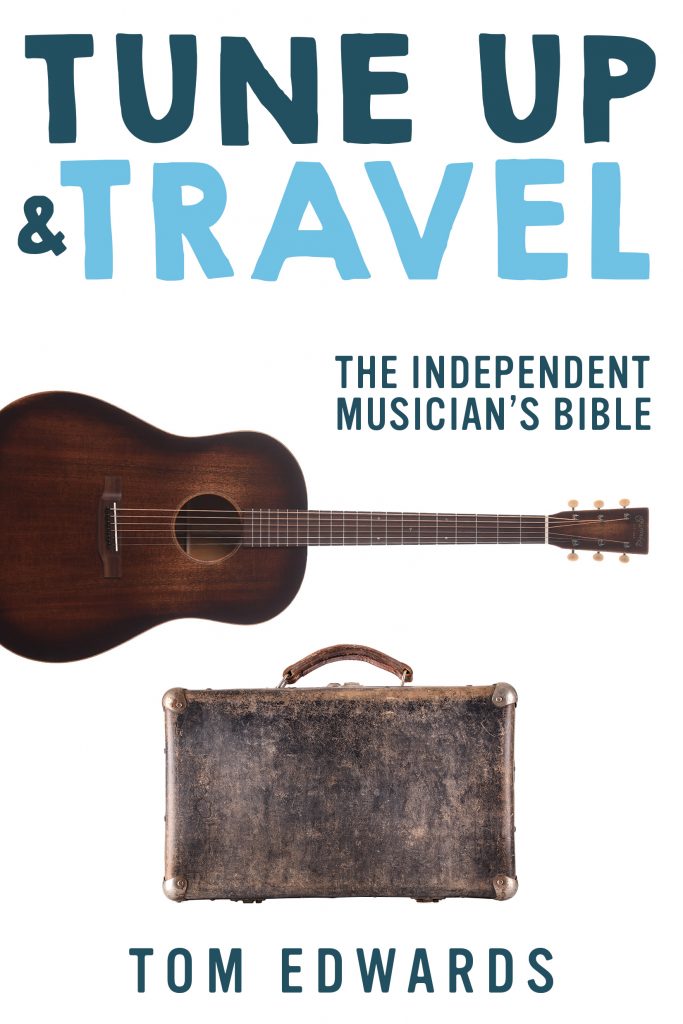
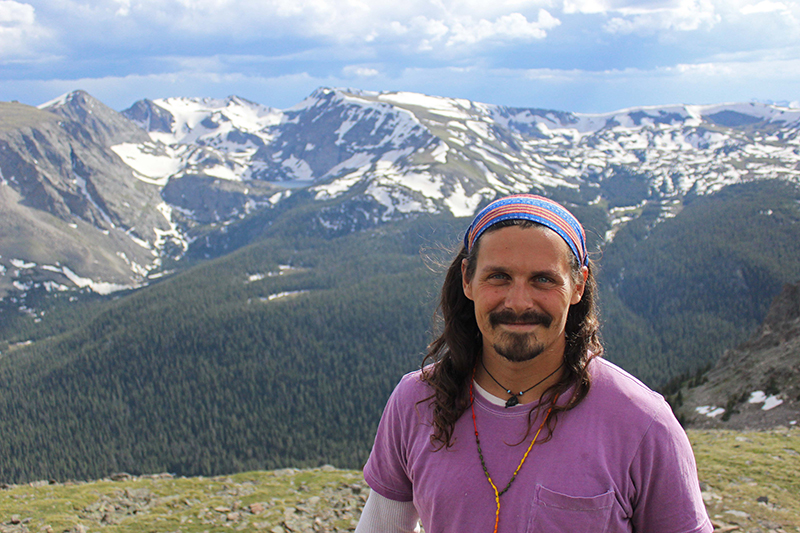
Greetings fellow travelers, artists and musicians. My name is Brian. My wife Katie and I are full time touring artists/musicians. Full time as in we live in a converted school bus (that runs on waste veggie oil & solar panels) and spend most of our year touring. I’ve been a full time musician for seven years now. We average at least 150 shows per year and drive around 1000 miles a week. Katie and I are in the middle of our 2014 summer tour and my friend Tom asked me if I could write a short article about how to book shows while on the road. I’m super humbled for the opportunity. I hope this is informative and helpful.
1. LOOK PROFESSIONAL: Even if you are an amateur musician looking to go full time into touring, you have to look professional (ie. show them that this ain’t your first rodeo). Obviously, you have to have a Facebook and YouTube channel. But go the extra mile and invest in a website. There are a ton of simple and easy websites that allow you to build your own site for cheap (wix.com and/or weebly.com). Buy your domain and fill it with good content. Hire a photographer (or find a friend with a good camera) and have them take quality pictures. Try to show a diversity of shots and stay away from the iPhone pictures and cliche (railroad tracks, brick walls, and corn field) band pictures… They’ve already been done a million times.
2. SEND SHORT EMAILS: In your emails make sure you have a press kit. This is what my press kit looks like. I used to send all these attachments in my email, but have since abandoned that method because the emails often get thrown in the junk folder or clog up the persons inbox. When I send an email it is super quick and straight to the point. Quick introduction, what I do (and what my music style is), link to my press kit, link to music/video. These are the dates we’re looking at and this is my draw (or experience playing in the area) and that’s it. Don’t make it too wordy or use CAPS. Also, don’t be too overbearing. Remember again, this ain’t your first rodeo.
3. GIVE YOURSELF PLENTY OF TIME: I think this is the most important thing when booking a tour in the US (besides having a professional web presence). You have to give yourself a lot of lead time to try and book a tour. I typically start reaching out to venues 6-9 months ahead of time. In some cases that is too early (especially when trying to book a venue I’ve never played before). But how I word it is the key. If I’m working that far in advance I don’t go and ask for a date right out of the gate, I’ll tell them something along the lines of—”I know it’s a long time from now, but, we are expecting to be in [city/town] the [first/second/third/fourth] week of [month]. When do you usually start booking that time frame?” If you include that in your first email and let them know you’re just trying to reach out now (instead of later in the year when things get busy) chances are they’ll look you up and tell you when a good time to follow up will be. Once you’ve played a venue and they like you, the booking agent will probably be more willing to book you further in advance. The key is to be the first one to ask and get that date booked before everyone else starts trying to get it.
4. DO YOUR RESEARCH: When I was booking my first few tours I wanted to play any and everywhere that would book me. I didn’t care if it was a punk/rock club if it was a gig and they paid I was there. After a few terrible shows I realized that I need to do a better job on booking venues where my music will be a good fit. Don’t make the mistake of telling yourself that your music is awesome and everybody will love it (if they do, then you’re not doing something right). The reality is that there are people who are going to love it and people who wont. Thus, work on getting into the venues that will be great fit and avoid the venues where it wont. What I used to do back in the day is look up venues that had open mics (openmikes.org). (If they have an open mic, then chances are they have live music too). I would then go to the venues website and see if I think my music would be a good fit. I would also go and check out the venues calendar and see what other bands they have booked. Then I would look up those bands and see their touring schedule and look up each and every venue they played to see if I would want to play there. You can spend hours doing this.
5. WORK HARD: You literally have to work harder than you ever worked before. Think about how hard your boss wants you to work when you’re on the clock. Now think about much harder you would be willing to work if you had to be your own boss. I log in hundreds of hours between December and April booking shows. Every year gets easier and easier. This is my seventh cross country tour and booking is a lot easier than it was when I first started. If you are wanting to make money touring, you have to look at the big picture. It isn’t something that is going to come quick and easy. In 2013, I sent almost 2000 emails (and played 150 shows). Don’t make the mistake of thinking everyone if going to read your email. If you ask any booking agent, they will tell you they receive hundreds of emails every week from aspiring musicians. Follow up. Don’t send more than one email a week. When you do have to follow up, write it as if it’s your first time contacting them. Sometimes I call the venue and ask who books and what their email address is, just to make sure I have it right. Don’t take it personally if they don’t get back to you. You can also call them as well. If you do call, do it Monday – Friday between the hours of 2pm and 5pm. Don’t call during busy times.
6. SMALL TOWNS ARE GOLDMINES: Personally, I stay away from the cities with ‘great music scenes. This includes (but not limited too) New York City, Los Angeles, Nashville and Austin. Nothing against those scenes, I just think they are great for people who want to go out and see live music but not so much for musicians trying to make a living. In my touring experience we have the most success in small towns. I think it’s because small towns are filled with the same local yokels who play the same venues with the same music week after week after week. If you go in to a small town where they don’t get as much variety you’re more likely to get people curious about who you are and take a chance on seeing someone they’ve never seen before. Also, word of mouth spreads like wildfire in those towns. Katie and I book our tours around National Parks and hot springs. Tourist destinations are good too.
7. THINK OUTSIDE THE BOX: You have to get creative when booking a tour. Like I mentioned before, I used to try and book any and every venue that would have me. Eventually, I got to the point where I realized that I have to start thinking outside the box. I’ve found great success in playing farmers markets. Sure, most markets don’t have a huge budget (which is okay). What they do have is a built in audience of people/families. There have been times where I played a farmers market (with no guarantee) and walked away with $300-$700 and some awesome produce!! Once I book a market gig I usually start researching venues in the same city/town and when I email the booking agent I tell them that I’m also booked at the farmers market which is a great way to advertise for the show. If the market is on a Saturday you can still book a show later that night or the next day. It’s a win-win. I’ve also found success in playing in schools and Yoga studios. I’m not much of a yogi, but I enjoy going in and playing an hour set (of all instrumental music) while people (with great intentions) practice. I’ve also had people tell me that retirement homes are a good bet. I’ve only played one show at an old folks home but they usually have a small budget to bring in entertainment. Again, this is a gig that you do during the day with the possibility of booking another one at night.
8. MONEY: Touring can be fun and exhausting. If you do it right and put in your time, you can actually make good money touring. At the same time you can also spend a lot of money. Regardless of how well you do on the road if you’re wanting to sustain yourself and make a living on the road you have to be smart with your money. Touring is not a vacation. It is a business. Between 2007-2009 I drove myself into debt touring this country. Katie and I had to do something. We bought a van (and eventually a bus) and converted them to run on waste veggie oil. We also made it our full time home. It does take an initial investment for the conversion ($1500 for the van and $3000 for the bus) but since 2010 we have collected over $25000 in veggie oil (that would be fuel costs). Not only are we saving thousands of dollars in fuel but we are also are saving thousands on hotels/rent/mortgage. (If the average person pays $1000/month in housing) then we have saved $36000 in housing/hotel costs in the last three years. Combine that with my fuel saving and that is a grand total of $61000) since 2010. That is a serious chunk of change!! Now we are out of debt and have been saving money.
Living on the road can be super cheap or super expensive. Depending on how frugal you are. When it comes to negotiating money for a gig I always try to ask what their budget is for music (I don’t mention anything about $ in the first email). Sometimes I might be looking to get $150-$200 from a smaller venue and then they come back and say their budget is “$400 will that work?” (Uhm. Yes. Actually. That will be great). Here is the kicker though. Because I am trying to make a career out of touring I always try to think about the next year. What I am trying to do is setup a good (long term) business relationship that is beneficial to both parties. If a venue asks me what I charge (or looking to get) I always say something along the lines of “I work with all kinds of venues with all kinds of budgets. The most important thing for me is that everybody wins.” It’s nice to have a great guarantee but I always say that if something crazy happens (like a football game, rain, or any other unforeseen event that kills business) I will always take less so that ‘everybody wins.’ Then, if the show comes around and it’s a dead night we always put our money where our mouth is and offer to take less. Always. In fact, if it’s getting towards the end of the show and it’s obvious it’s been a slow night, we always go in and tell them to give us less. What this does is 1) Shows the venues that you care about their business and are willing to work with them. 2) You’re not just someone who will ‘take the money and run.’ 3) If it’s an independent venue (or a mom and pop type place) they will really appreciate it and be more than willing to bring you back. Taking less money is a sign of character. People respect that. It’s one thing to be liked and another to be respected.
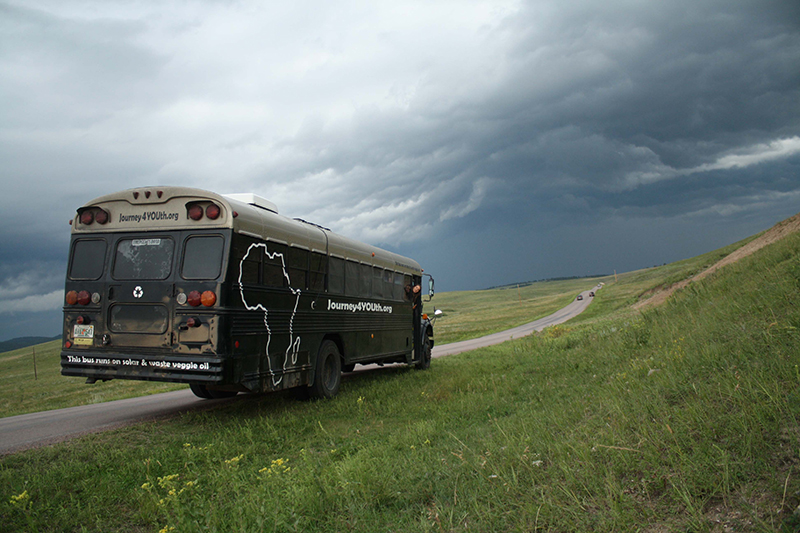
9. LIFESTYLE: It’s crazy how much ‘life on the road’ will take out of you. One thing we try to do is schedule in days off and take time to do fun (and cheap) things while on tour. Like I mentioned before, we book a lot of our shows around National Parks. We buy an annual pass and after our gigs we get done playing we go and spend a few days hiking and relaxing somewhere beautiful. This is very important because you have to have balance on the road. You can’t sustain yourself by driving and gigging and driving and gigging. You have to take time off and recharge. Otherwise you’ll burn yourself out.
10. LAST MINUTE GIGS: So say you’re out on the road. You gave yourself plenty of time but still have a huge hole in your schedule, or say a venue cancelled on your. You still have to make something happen. What I do to pick up last minute gigs is contact a venue and tell them something like “I just had my show in ________ cancel on me” or “We’re in a bind and we really need to get some work. I know it’s last minute but is there any chance you have anything available on _______.” Don’t ever be dishonest. Just tell them the situation in a sentence or two. Be open to take anything you can get. Even if it’s nothing. If you are thinking about the long term and next years tour then ‘nothing’ is actually ‘something.’ If you have a good show you’re pretty much guaranteed to get in the next year. Plus you might make some tips cd/merch sales. It’s happened to us. We’re trying to fill in a date that was canceled. Venue had no budget. No worries. We came in and played. Did great and booked a paying gig the next year. Also, you can try playing an open mic (make sure you bring cd’s). Like I mentioned before, if a venue has an open mic they probably do live music other days of the week. Ask the open mic host or bartender who books (if they’re not there already). To me, open mics are like auditions for gigs. Last but not least you can always busk. Personally, I think every musician should have to busk at some point in their career.
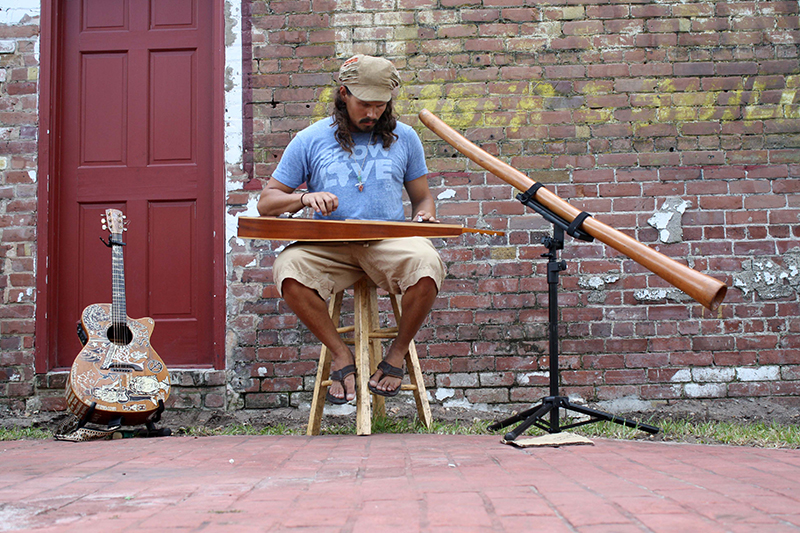
One last thing I want to say is this. For those of you who don’t have a professionally recorded and manufactured cd. That is okay. I did four cross country tours before I released my first studio album. For me, I started out as a busker (street performing). What I would do is get two or three of my best songs and burn them onto a cd. I would spend hours burning and writing on my cd’s. If it was a busking weekend I would have somewhere between 100-300 burned demo cd’s. If it was a show, I would have a minimum of 10 (but usually more). Then while I was performing I would put a stack of cd’s and a sign right in front of my guitar case (also serving as my tip jar) that said ‘FREE DEMO CD’S. PLEASE TAKE ONE’.’ Buy the blank cd’s in bulk (or packs of 100). That way you’re paying about $0.35 per cd. Give them away. 99% of people who take a ‘free’ cd usually throw in at least a dollar. Between 2006-2009 I ‘gave away’ somewhere between 7000-8000 demo cd’s. (I only put 2 or 3 songs on it because it takes a lot less time to burn). I spent hundreds (maybe thousands) of hours in front of a computer doing this, but it was my main source of income in those early years. Plus I got my name out there. I still (to this day) get people that say they have one of my ‘old school’ cd’s. It’s kinda nostalgic.
I hope this information was helpful and that you all have good luck touring. Remember to always be respectful at the venues. Ask the bartenders if the sound is okay (and always be quick to turn it down if they ask). Tip the bartenders a $5 bill right off the bat. Even if you just get a soda or water. Don’t be a rockstar. There are enough of those out there already. Good luck and safe travels.
-Brian Ernst
Editor Note: Brian Ernst can be found on the web at www.brianernstmusic.com. You can also check out his non-profit organization at www.Journey4YOUth.org. I’ve followed Brian on social media for years and was always jealous of his full-time tours. Apart from touring the US, Brian has also traveled all around the world with his wife Katie. They’ve made it to Europe, Southeast Asia, Australia, New Zealand, and finally Africa, where they actually lived in a mud hut with local villagers in Southwestern Kenya for three months. It was there that they realized how much they could help the village there, and pledged to do so. Since then they’ve done an incredible amount of work to make it happen, including making Journey 4 YOUth into an officially-recognized 501(c)3 non-profit organization. Brian helped me a lot with planning my first RTW trip, and was partly inspiration—along with Leif of The Runaway Guide—for finally heading out and starting to live life to the fullest by traveling the world.
I don’t know anyone personally who tours more than Brian, so I thought I’d ask him for some insider tips to help out readers and even myself with keeping busy on the road! Check out his website, give him a like on Facebook and tell your friends about him so you can catch a show the next time he comes around your area (he probably will).

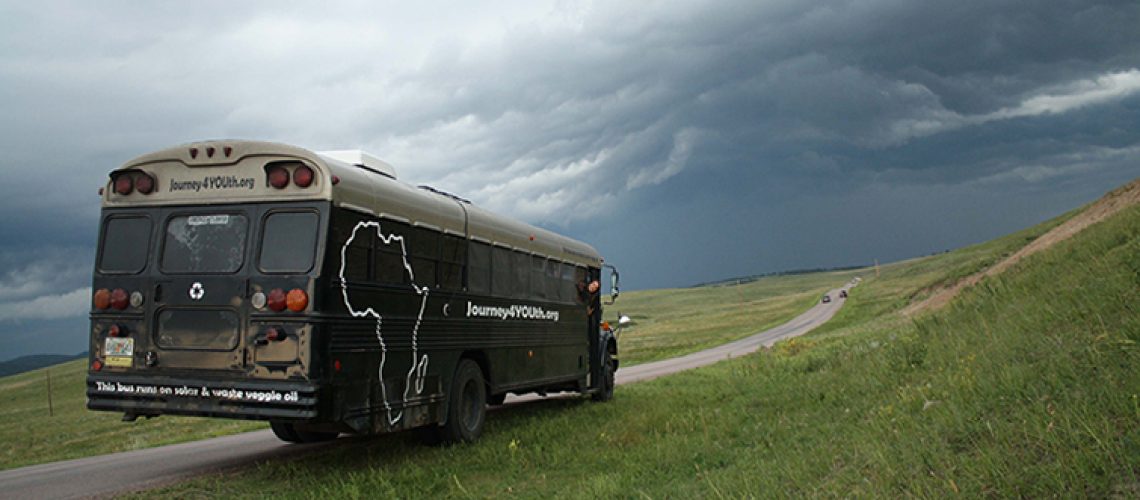
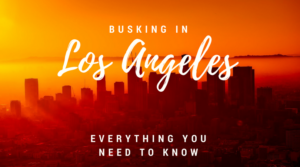
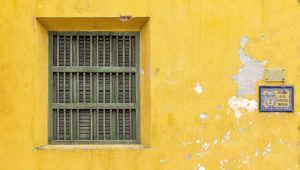
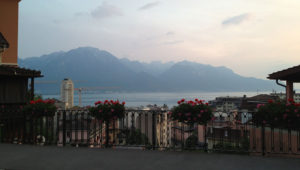
2 Responses
Your experience is so valuable, thank you for sharing. This is a great how-to.